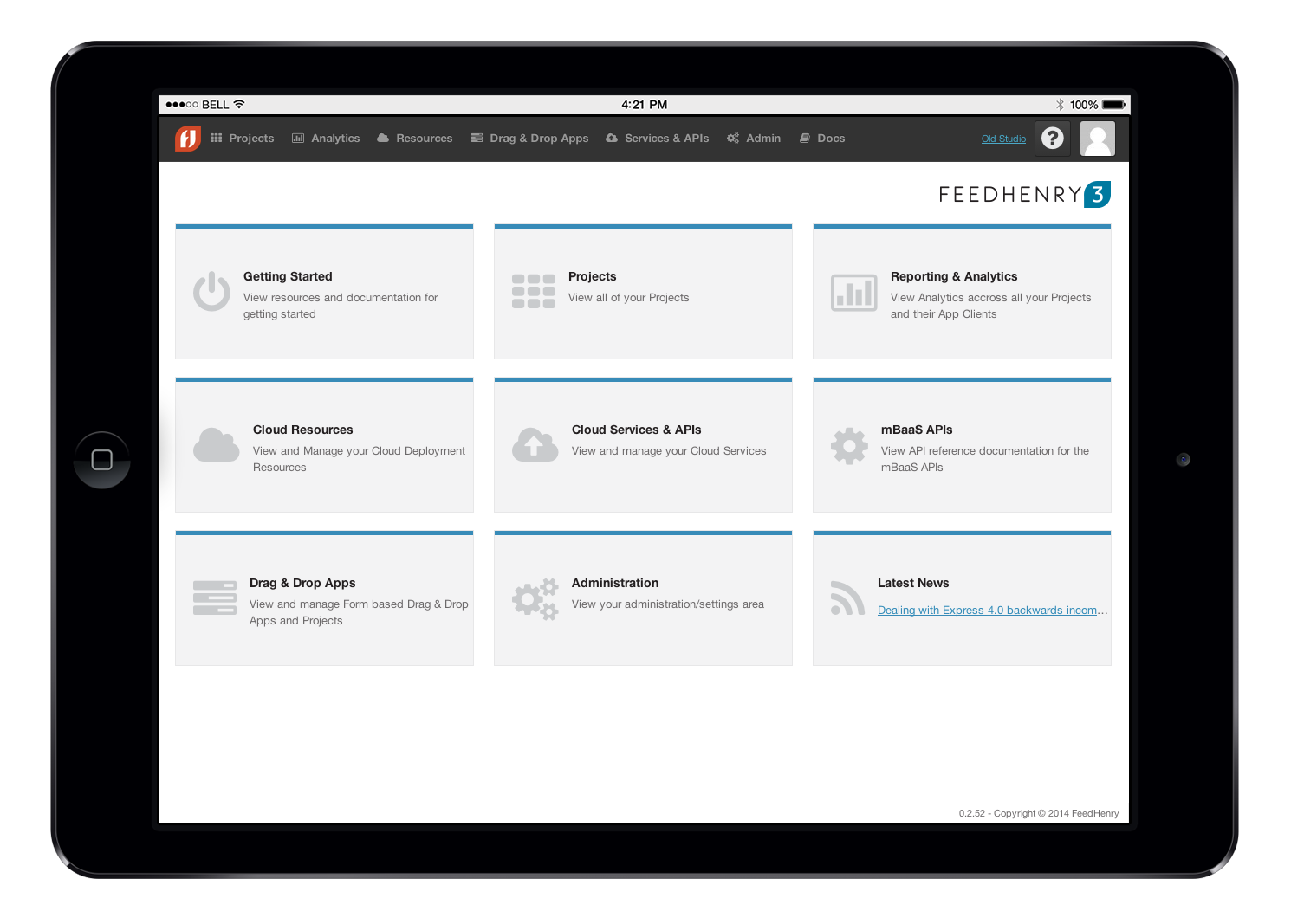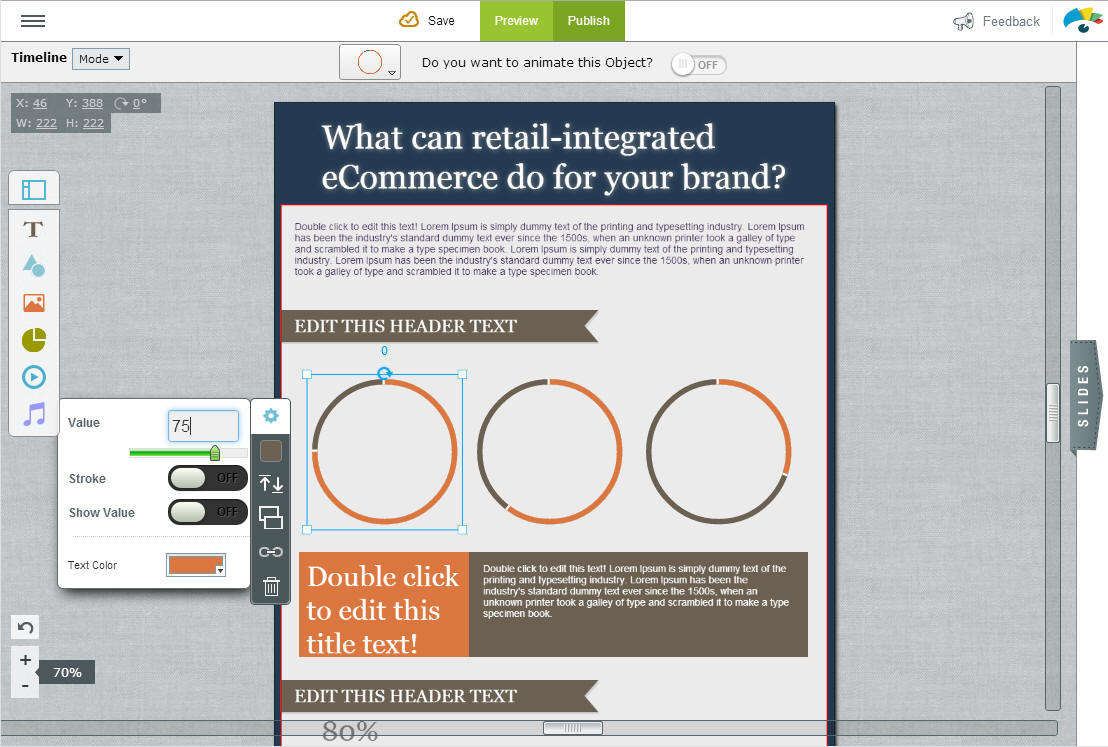
HP invests over $1 billion in new open source cloud products
As businesses shift more of their operations to the cloud so the demand for reliable, scalable services and platforms increases.
To address these needs HP is launching a new portfolio of cloud products and services called HP Helion. This incorporates existing HP cloud offerings with new OpenStack technology-based products, professional and support services in a single portfolio to help meet customers' specific business needs.

Dropbox pulls access to hyperlinked files after vulnerability discovered
Dropbox, one of the most popular cloud storage services, has largely avoided the spate of recent security woes suffered by other companies. But no system is perfect, and a warning has now been issued after a flaw in hyperlinked files was discovered.
"Whenever you click on a link in any browser, the site you’re going to learns where you came from by something called a referer header. The referer header was designed to enable websites to better understand traffic sources. This is standard practice implemented across all browsers", says Aditya Agarwal.

Dell Chromebook 11 review
Chromebook represents a philosophical change -- a quiet revolution -- in personal computing, where relevance moves from hardware and software to electrical service-like cloud utility. In this brave new world, Chromebook is an appliance meeting most desktop needs, and pricing is closer to microwave ovens than to traditional PCs.
Nowhere is there more receptiveness to adaptation, or willingness to lead technological revolution, than the education market. There is historical precedent and fortunate timing: Chromebook fits neatly. Cost is low, utility is high, and familiarity is great. What is more natural to Millennial students than the web browser? They are accustomed to breathing the cloud's rarefied air and enjoying the benefits of anytime, anywhere computing -- freedom to float. Dell Chromebook 11 is primed for educational use while, unlike Lenovo's model, being easily purchased by anyone. This review addresses the computer's suitability for students, teachers, or you.

The most popular stories on BetaNews this past week: April 27 -- May 3
Security news a-go-go once again this week, starting off with a massive security flaw that was discovered in Internet Explorer. The problem affects everything from Internet Explorer 6 to 11, but it was Windows XP users who were particularly at risk due to the fact that Microsoft has ended support for the operating system and is releasing no more security patches. At least that was the case before this problem came to light, causing the company to change its mind and give users one more hit of update goodness.
While Microsoft's latest security whoopsie did leave Microsoft licking its wounds a little, there was cause for celebration for OneDrive for Business users as storage was boosted to 1TB -- and the cloud is becoming ever more important with predictions suggesting 50 billion online devices by 2020. Microsoft was also able celebrate finally having a launch date for the Xbox One in China. In other security news, AOL email service was hacked leading to the leaking of customer data and a new report suggested that just about every website dealing in pirated material is also home to scams and/or malware.

Playcast launches beta trial for Ouya
Ouya began life as a Kickstarter darling that everyone was talking about. However, since its actual launch, the little Android gaming console has largely been a non-factor in the market.
Now Playcast may bring a bit more legitimacy to the platform, as the service has begun beta testing on the Ouya box. Playcast, if you aren't familiar, is a cloud gaming service that licenses and offers console-level games, from shooters to action, sports, and more.

Surprise, surprise -- almost every piracy website features cyber scams
Many people think nothing of grabbing the latest episode of Game of Thrones, Blacklist -- or whatever the current show du jour may be -- via one of a seemingly endless number of sites that provide access to pirated material. If you've ever visited such a site, you'll be aware that there is always something of a payload. You'll find advertisements -- usually of a pornographic nature -- fake chat windows, misleading links and all manner of other nasties. For the web-savvy, this is nothing new, but for every tech-minded torrent aficionado who is able to traverse through the online ghettos with an element of safety, there are countless others who are less well informed. And the world of pirate material is a dangerous one for the novice.
While this may not be news in itself, the figures involved are really quite surprising. A report published by The Industry Trust reveals that virtually every one of the most popular sites used to download or stream pirated films and TV shows are riddled with malware or credit card scams -- a staggering 97 percent. The report goes on to suggest that 75 percent of people who have made use of such a site have then experienced problems with their computers. The study was limited to 30 of the most frequently used pirate sites, and monitored them over a two week period. Just one site was found to be free from malware or credit card scams.

Mobile app platform helps enterprises embrace mobility
Developing for in-house mobile platforms can sometimes be a bit of a poor relation in the allocation of resources, as it may be important to front-line departments like sales but is less so for IT.
A solution could be at hand from Irish tech company FeedHenry which has launched the latest version of its cloud platform, allowing companies to simplify the building of mobile apps for their employees.

New platform aims to get business apps working in Harmony
Thanks to mobile devices, the cloud and the internet of things Cisco reckons that by 2020 there will be 50 billion digital endpoints.
This volume of connected devices offers huge potential for business. But as 85 percent of enterprise data still sits on in-house systems like ERP packages and secure databases its potential is hard to release.

Microsoft gives OneDrive for Business users 40 times more storage space
Free storage space is very common, and it's available from the likes of Dropbox, Google and countless others. Microsoft's OneDrive also gives users a certain amount of free online storage space, and today business users receive a massive boost -- a forty-fold increase in capacity. OneDrive for Business storage is being boosted from 25GB to 1TB per user, and the same is true for Office 365 ProPlus customers.
Microsoft is putting ever-increasing faith in the cloud, particularly for its business users. "The cloud is about breaking down walls between people and information. Not building a new set of islands in the sky", states the Office blog. There's a third announcement too: "we’ll help organizations migrate data to OneDrive for Business". It's not quite clear exactly what this entails, but it certainly sounds good for anyone who has their data hosted elsewhere.

Companies could make big savings by moving from MS Office to Google Apps
Moving to the cloud is one of the biggest trends in enterprise IT at moment, but office systems are still clinging resolutely to in-house machines even though there could be big savings to be had from moving them online.
With the launch of its new SaaS analytics application Israel-based SoftWatch offers IT managers the ability to get real-life usage data from Microsoft Office so they can see the potential benefits and return on investment available from moving to Google Apps.

Want to access Hulu via VPN? Tough luck!
The regionalization of the internet can be infuriating. Anyone living outside the UK is prevented from accessing the likes of BBC iPlayer, while those outside the US can’t listen to Pandora or use other country-specific streaming services. At least that's the theory -- there's always a work around, isn't there? There are countless anonymizing services that can be used to make it appear that you are somewhere other than where you truly reside, or even appear that you are nowhere at all.
These tools and VPN services can be used to trick websites into thinking you're a legitimate user who should be allowed to get your streaming fix from anywhere in the world. But no more! At least if Hulu gets its way. The TV streaming behemoth has had enough of non-US streamers making use of its servers and it is clamping down on the use of VPNs. A report by TorrentFreak reveals that Hulu is blocking IP addresses associated with VPN services in a bid to prevent unwanted tagging on.

The most popular stories on BetaNews this past week- April 20 -- April 26
After weeks of negotiations, changes to terms and all sorts of other shenanigans, Microsoft finally completed its acquisition of Nokia's Devices and services arm. Developers, and the eager average user, have now had a little time to play with Windows Phone 8.1, and Mihaita is one person who feels it is a big step in the right direction. The release of Microsoft Remote Desktop for Windows Phone 8.1 is something that will be welcomed by owners of Microsoft handsets who need to access their computers on the move.
Another release -- not software this time -- Microsoft's fiscal announcement showed that the company had $20.4 billion revenue It wasn't just Microsoft sharing financial figures this week -- Apple also revealed its latest accounts for Q2. And Microsoft joining forces with Nokia was not the only new marriage -- Microsoft and AOL also came together in a new content deal. Joe waxed lyrical about the Surface platform, suggesting that Microsoft needs to do more to promote it -- and a new campaign aims to draw in a new audience using everyone's favorite… cake! And with the Chromebook 2 being delayed, Microsoft stands a chance to gain more ground.

Microsoft Q3 2014 by the numbers: $20.4B revenue, 68 cents EPS
Today, after the closing bell, Microsoft disclosed results for fiscal third quarter, during most of which freshly-minted CEO Satya Nadella captained the ship. Of course, he carries a course set for him by predecessor Steve Ballmer, and his real impact is really quarters away. But there's a fresh presence behind the wheel and a new hat hanging in the captain's cabin. That's reason enough for Wall Street to forgive any storms the good ship Microsoft sales -- eh, sails.
For the three months ended March 31, Microsoft reports $20.4 billion revenue, flat year over year. Operating income: $6.97 billion. Net income: $5.66 billion, or 68 cents a share. All figures are GAAP.

Telematics adoption saves money for fleet operators
Despite more and more aspects of business moving online, many tasks still need to happen in the real world. In fact some things like vehicle fleet operations have arguably become more important as increasing numbers of us shop online and have our goods delivered.
Operating vehicles can be a major part of a company's costs so anything that can help control them is worthy of management consideration.

Visme wants to be the only tool businesses need for visual content
Whatever message you want to get across, whether it's in an advert, an infographic or a presentation, how it looks is key to success.
Maryland-based Easy WebContent has relaunched its Presenter tool under the name Visme aiming to make it a "Swiss knife for visual content".
